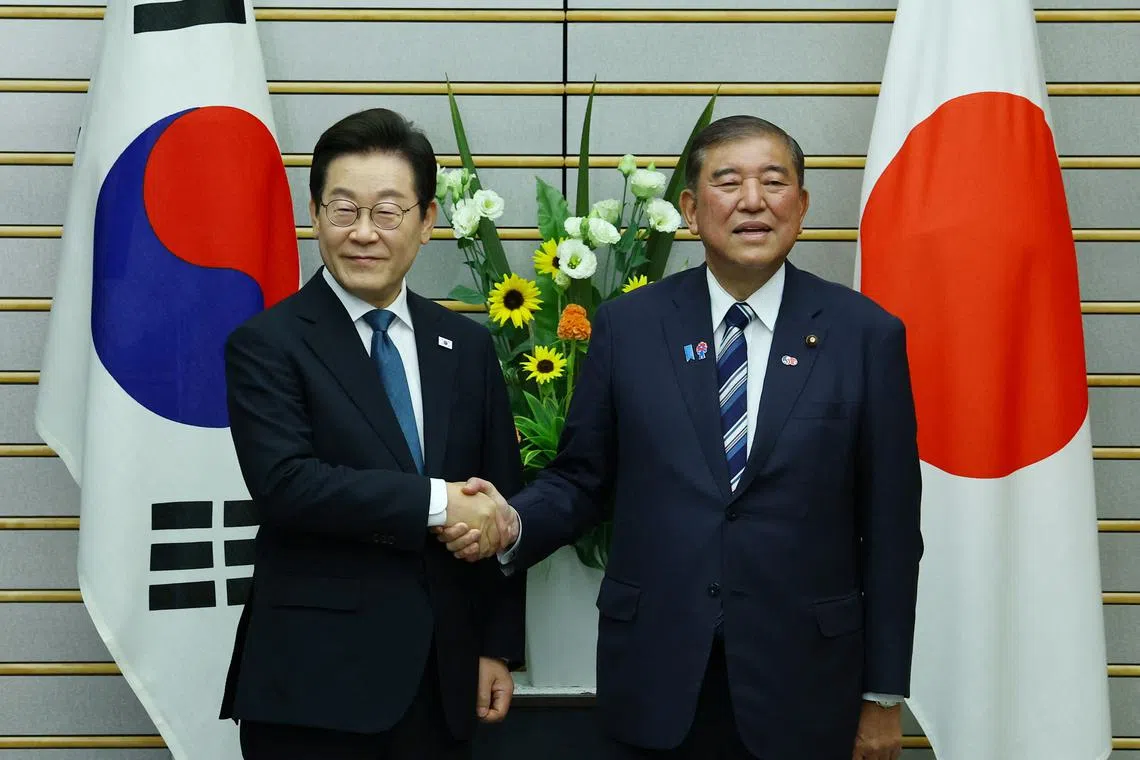Japan’s Ishiba, South Korea’s Lee affirm cooperation before Lee meets Trump
Sign up now: Get ST's newsletters delivered to your inbox

South Korean President Lee Jae-myung (left) meeting Japanese Prime Minister Shigeru Ishiba in Tokyo on Aug 23.
PHOTO: REUTERS
Follow topic:
TOKYO – Japanese Prime Minister Shigeru Ishiba and South Korean President Lee Jae Myung reaffirmed security cooperation between the two East Asian neighbours on Aug 23, ahead of a summit Mr Lee is to hold with US President Donald Trump on Aug 25.
On his first official visit to Japan since taking office in June, Mr Lee met Mr Ishiba at the premier's residence in Tokyo to discuss bilateral ties, including closer security cooperation with the United States under a trilateral pact signed by their predecessors.
“Stable relations benefit both our countries and our region,” Mr Ishiba said during an expanded round of summit talks. “It is also crucial that we strengthen our trilateral alliance with the US.”
The snap election victory of the liberal Mr Lee – following the impeachment of conservative President Yoon Suk Yeol
The South Korean government last week expressed “deep disappointment and regret” after Japanese officials paid their respects to the country’s war dead at a shrine in Tokyo
Despite their differences, the two US allies rely heavily on Washington to counter China’s growing regional influence. Together, they host around 80,000 US troops, dozens of American warships and hundreds of military aircraft.
“As the international order has fluctuated recently over trade and security issues, I think that South Korea and Japan, which have similar positions in values, systems and ideology, should strengthen cooperation more than ever,” Mr Lee said as he met Mr Ishiba.
In Washington, Mr Lee and Mr Trump are expected to discuss security concerns including China, North Korea, and Seoul’s financial contribution for US forces stationed in South Korea – something the US leader has repeatedly pressed it to increase
Japan and South Korea also share common ground on trade, with both agreeing to 15 per cent tariffs

